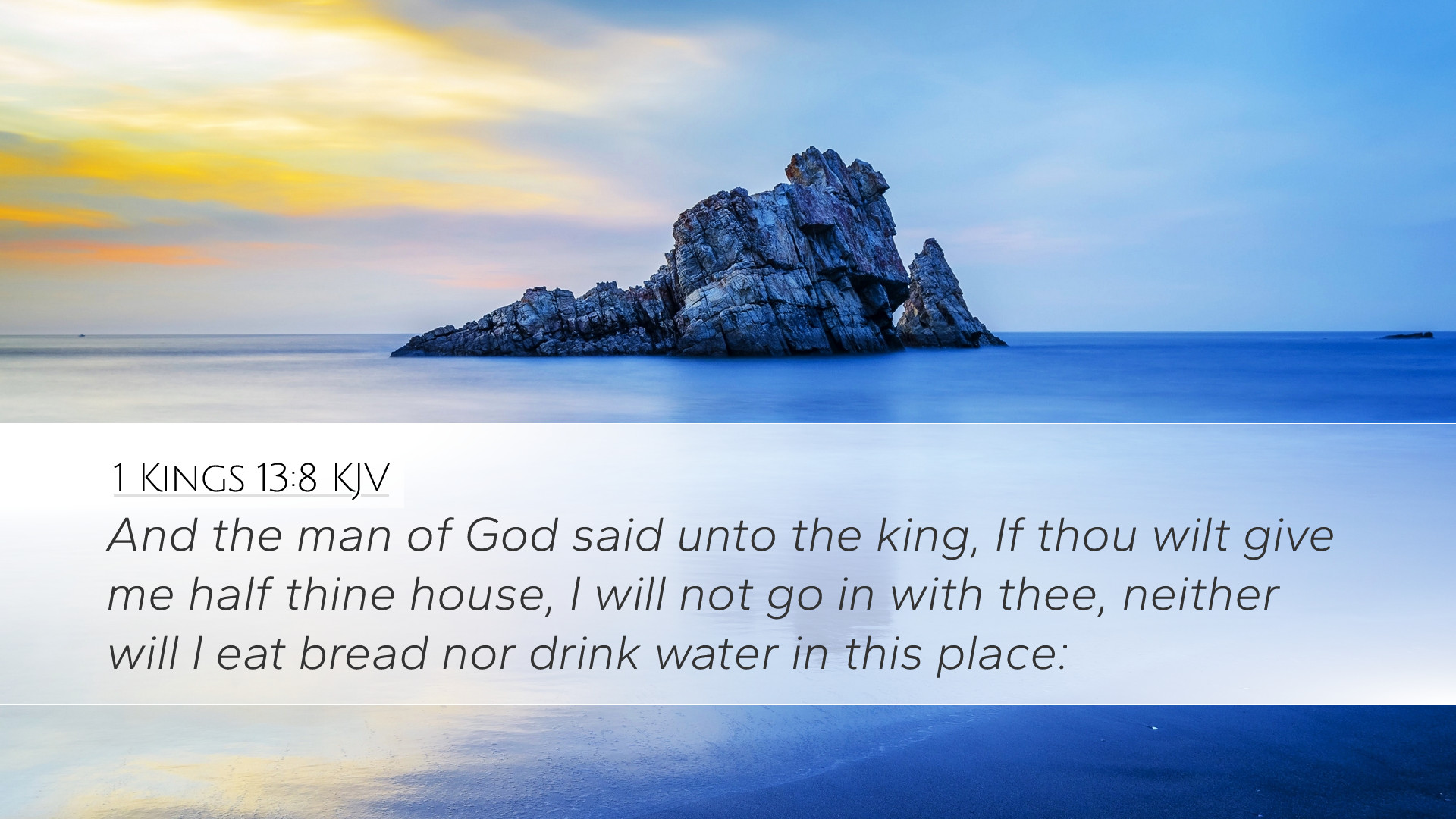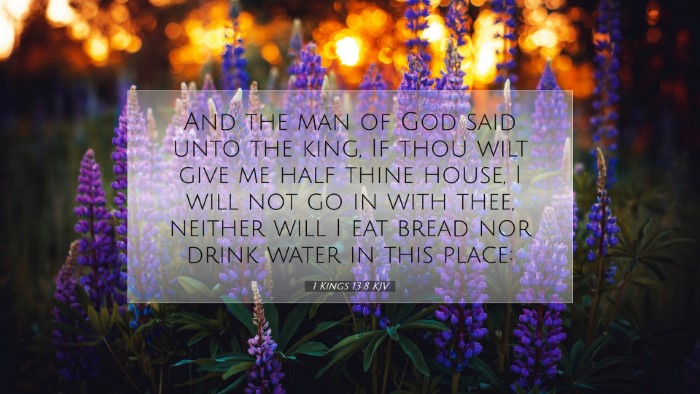Commentary on 1 Kings 13:8
Verse Context and Overview
1 Kings 13:8 states, "But the man of God said to the king, 'If you were to give me half your possessions, I would not go with you, nor would I eat bread or drink water here in this place.'" This verse captures a critical moment in the narrative where the man of God is confronted with the temptation of royal favor and material gain. The significance of this passage spreads across several theological and moral themes, which have drawn the attention of biblical scholars and theologians.
Theological Insights
- The Integrity of the Prophet: The refusal of the man of God to accept gifts from King Jeroboam highlights the integrity and spiritual discipline required of God’s messengers. Matthew Henry emphasizes that true prophets must prioritize their divine commission over material benefits, implying that their message is sacred and should not be tainted by earthly influence.
- The Role of Obedience: Adam Clarke elaborates on the theme of obedience in the life of a prophet. The command given to the man of God was not just to deliver a message but to maintain a lifestyle reflective of that message. His integrity in refusing rewards underscores a pivotal aspect of servitude to God.
- Divine Authority and Human Kingship: Albert Barnes remarks on the contrast between divine authority and human authority as exemplified in this encounter. The man's refusal to accept anything from the king signifies that his allegiance lies solely with God, emphasizing the supremacy of divine will over earthly power.
Ethical Considerations
The ethical implications of 1 Kings 13:8 resonate with contemporary issues of integrity in leadership.
- Materialism vs. Spiritual Calling: The man of God represents a model for modern-day ministers who may face similar temptations of materialism. The commentary suggests that pastors and church leaders should reflect on their motivations and resist compromises that could lead to a distortion of their message.
- The Importance of Accountability: The act of rejecting the gifts serves as a reminder that leaders must also be accountable to God’s commands. Scholars argue for ongoing accountability among church leaders to uphold their spiritual commitments.
Applications for Ministry
In considering 1 Kings 13:8, several practical applications emerge for ministry:
- Prioritize Divine Mission: Pastors are encouraged to prioritize their divine mission above personal gain, aligning their priorities with God’s kingdom values.
- Practice Spiritual Discernment: This passage emphasizes the need for discerning what is genuine in ministry, understanding that not all opportunities or offers are aligned with God’s purposes.
- Foster a Culture of Integrity: Building a community that values integrity in leadership can be a powerful witness to the world. Church congregations should model the principles exhibited by the prophet to cultivate strong ethical standards across their leadership practices.
Conclusion
1 Kings 13:8 serves as a timeless reminder of the call to integrity and obedience set before God's messengers. Drawing upon insights from revered public domain commentaries, we uncover a rich tapestry of ethical and theological reflections that are relevant for pastors, students, and scholars alike. The message stands clear: true service to God requires a steadfast commitment to His word, rejecting any temptation that may dilute that commitment.


